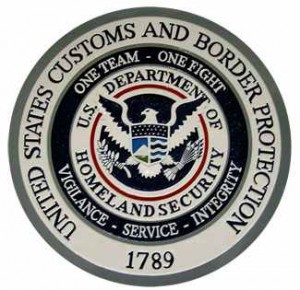CBP Issues Detention Order on Palm Oil Produced with Forced Labor in Malaysia
Written by Post Public Information Representative, Oct 1, 2020, 0 Comments
 Courtesy U.S. Customs and Border Protection,
Courtesy U.S. Customs and Border Protection,
WASHINGTON—Effective September 30 at all U.S. ports of entry, U.S. Customs and Border Protection (CBP) will detain palm oil and palm oil products made by FGV Holdings Berhad.
CBP’s Office of Trade directed the issuance of a Withhold Release Order (WRO) against palm oil and palm oil products made by FGV based on information that reasonably indicates the use of forced labor. The order is the result of a year-long investigation that revealed forced labor indicators including abuse of vulnerability, deception, restriction of movement, isolation, physical and sexual violence, intimidation and threats, retention of identity documents, withholding of wages, debt bondage, abusive working and living conditions, and excessive overtime. The investigation also raised concerns that forced child labor is potentially being used in FGV’s palm oil production process.
Palm oil is a common ingredient in products that U.S. consumers encounter every day in grocery and convenience stores. According to U.S. Department of Agriculture reports, palm oil is increasingly found in processed foods, cosmetics, pharmaceuticals, soap and biodiesel.
“The use of forced labor in the production of such a ubiquitous product allows companies to profit from the abuse of vulnerable workers,” said Brenda Smith, Executive Assistant Commissioner of CBP’s Office of Trade. “These companies are creating unfair competition for legitimately sourced goods and exposing the public to products that fail to meet ethical standards.”
Federal statute 19 U.S.C. 1307 prohibits the importation of merchandise mined, manufactured, or produced, wholly or in part, by forced labor, including convict labor, forced child labor, and indentured labor. This WRO will require detention of palm oil produced by FGV and any palm oil products or derivatives traceable to palm oil produced by FGV at all U.S. ports of entry. CBP provides importers of detained shipments an opportunity to export their shipments or to submit proof that the merchandise was not produced with forced labor.
All WROs are publically available and listed by country on the CBP’s Forced Labor Withhold Release Orders and Findings page. The Forced Labor Division, established in 2018 within CBP’s Office of Trade, leads the enforcement of the prohibition on the importation of goods made from forced labor.
CBP receives allegations of forced labor from a variety of sources, including from the general public. Any person or organization that has reason to believe merchandise produced with the use of forced labor is being, or likely to be, imported into the United States can report detailed allegations by contacting CBP through the e-Allegations Online Trade Violation Reporting System or by calling 1-800-BE-ALERT.
“CBP will continue to remind Americans that we can use our economic power to tell companies that we will not tolerate forced labor in U.S. supply chains,” said Smith. “We urge all consumers to research fair trade products and companies and shop directly with reputable retailers.”



